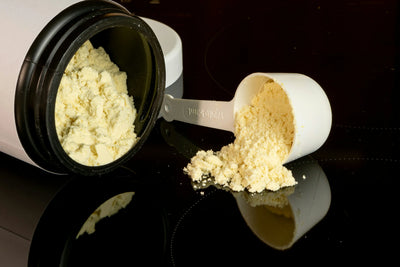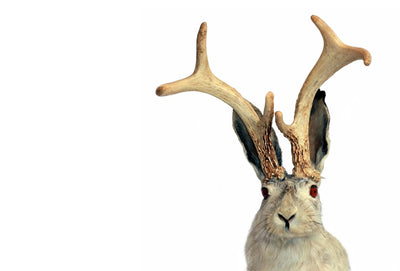Introduction
French Bulldogs have captured the hearts of countless pet owners with their comical and adorable appearance and gentle, loving personalities. However, this short-nosed breed has a sensitive gastrointestinal system, and diarrhea is one of their common health problems. Watching their dogs run to the bathroom frequently or become lethargic can be a heartbreaking experience for owners.
Why Does My Frenchie Have Diarrhea? Vet-Approved Causes & Solutions
This article will take an in-depth look at the common causes of diarrhea in French Bulldogs and provide veterinarian-approved home care and treatment options to help your dog return to health and vitality as soon as possible.
1. Common Causes of Diarrhea in French Bulldogs
Understanding the root cause of diarrhea is the first step in developing an effective solution. The following are common causes of diarrhea in French Bulldogs:
Dietary problems
Food Allergies: Studies have shown that up to 30% of dogs may be allergic to certain food ingredients (such as chicken, beef, or dairy products), and symptoms may not show up until 2-3 months after exposure to the allergen. French Bulldogs with sensitive stomachs are more likely to suffer from diarrhea as a result.
Food intolerance: Unlike allergies, food intolerances (e.g. lactose intolerance) do not trigger an immune response, but can lead to indigestion and diarrhea.
Poor diet: Dogs stealing junk food, human table scraps or spoiled food can irritate the gut and cause diarrhea.
Changing food too quickly: a sudden change in dog food may catch the stomach and intestines off guard. It is recommended to gradually transition to a new food over 7-10 days to reduce the risk of diarrhea.

Infection
Bacterial infections: Bacteria such as salmonella or E. coli may enter your dog's body through contaminated food or water, triggering acute diarrhea, often accompanied by foul-smelling stools.
Viral infections: Serious infectious diseases such as distemper or microvirus can lead to diarrhea accompanied by vomiting, bloody stools, or extreme weakness, requiring immediate medical attention.
Parasitic infections: Parasites such as roundworms, whipworms or tapeworms can compromise intestinal health and cause diarrhea, and the worms may even be seen in the feces.
Stress
Environmental changes: Changes such as moving, traveling, or a new member joining the family can stress out a sensitive French Bulldog and trigger diarrhea.
Emotional problems: Anxiety, fear, or over-excitement may also lead to gastrointestinal dysfunction and temporary diarrhea.
Other Causes
Inadvertent ingestion of foreign objects: French Bulldogs are curious and may swallow pieces of toys, plastics or other non-food items, causing intestinal discomfort or obstruction.
Medication side effects: Antibiotics or other medications may disrupt the balance of intestinal flora and trigger diarrhea.
Chronic illnesses: Chronic illnesses such as inflammatory bowel disease (IBD), pancreatitis, or liver disease may cause recurrent diarrhea and require professional diagnosis.
2. Solutions for Diarrhea
For French Bulldogs with diarrhea, here is a combination of home care and medication to help you quickly relieve your dog's discomfort.
Home Care
Adjust diet: For mild diarrhea, temporarily fast for 12 hours (6 hours for puppies) to allow the intestines to rest. After fasting, gradually introduce easy-to-digest food, such as white rice with a small amount of cooked chicken breast. The addition of digestive enzyme preparations or oral rehydration salts (e.g. electrolyte solution) can help restore water and electrolyte balance.
Probiotic supplementation: Probiotics can rebuild beneficial intestinal flora and relieve diarrhea. Choose a canine probiotic product (e.g., a supplement containing Lactobacillus or Bifidobacterium) and add it to food as directed for a few days to a week.
Montelukast: Montelukast is a natural antidiarrheal that adsorbs intestinal toxins and is suitable for diarrhea caused by poor diet, cold or stress. Mix into food or water according to body weight (about 1g/5kg), consult your veterinarian to confirm the dosage.
Medication
Antibiotics: If the diarrhea is caused by a bacterial infection (e.g. salmonella), your veterinarian may prescribe antibiotics such as metronidazole or amoxicillin, which should be used strictly according to the prescription.
Antiparasitic drugs: Parasitic infections require targeted deworming, commonly used drugs such as praziquantel or fenbendazole. The veterinarian may require a fecal examination to determine the type of parasite prior to treatment.
Antidiarrheal drugs: Antidiarrheal drugs such as loperamide can slow down intestinal motility and relieve acute diarrhea, but must be used under veterinary supervision to avoid masking a serious condition.
Preventive measures
Regular deworming: Monthly external deworming (e.g. fleas, ticks) and internal deworming every 3-6 months to prevent diarrhea caused by parasites.
Vaccination: Get the core vaccines (e.g. distemper, fine virus vaccine) on time to reduce the risk of viral infection.
Environmental management: Keep your dog's living environment clean, sterilize food bowls and toys regularly, and avoid contact with garbage or toxic substances. Ensure food is sealed when storing to prevent spoilage.
3. When to See a Veterinarian?
While mild diarrhea can usually be relieved with home care, the following conditions require immediate medical attention:
Persistent diarrhea: Diarrhea that lasts more than 24 hours or is accompanied by vomiting, bloody stools, fever or depression may be a sign of a serious infection or illness.
Signs of Dehydration: Loss of skin elasticity (does not immediately return when pinched), sunken eyes, dry mouth, or decreased urine output indicate that the dog may be severely dehydrated and require emergency fluids.
Weight loss: Unexplained weight loss or loss of appetite may indicate a chronic condition such as inflammatory bowel disease or pancreatic problems.
Promptly contacting your veterinarian for a fecal exam, blood tests or imaging can help clarify the cause and develop a targeted treatment plan.
Diarrhea problems in French Bulldogs can be caused by a variety of reasons including poor diet, infection, stress or chronic illness. Mild diarrhea can usually be relieved within 1-2 days with home care regimens such as dietary modifications, probiotic supplementation, and the use of montelukast. However, the sensitive nature of French Bulldogs means that diarrhea may not only be a minor problem, but may also be an early sign of a more serious illness. If your dog's diarrhea persists or is accompanied by unusual symptoms, don't hesitate to seek medical attention as soon as possible. Hopefully, this veterinarian-approved guide will help you take better care of your French Bulldog, so they can stay free of diarrhea and show off their lively, loving smiles again!
How to Stop Dog Smelling Like Corn Chips: 5 Simple Home Remedies
It can be both funny and confusing when you pick up your beloved dog and smell a strange odor like cornflakes. While this distinctive “cornflake odor” may sound cute, it can often be a sign of a health problem, especially in sensitive dogs. Don't worry, with a few simple and effective home remedies, you can help your dog get rid of the odor and feel fresh again. In this article, we'll take a closer look at the causes of “cornflake odor” in dogs and share five veterinarian-approved home remedies to restore your dog's health and comfort.
1. Why Your Dog Smells Like Cornflakes?
Understanding the source of the odor is the first step in solving the problem. Here are some common reasons why dogs smell like cornflakes:
Yeast infection
The culprit of the “cornflake odor” is usually a yeast infection. Yeast is a fungus that thrives in warm, moist environments such as your dog's ear canals, paws or skin folds. Overgrown yeast produces a distinctive odor, similar to cornflakes or fermented bread, and is especially common in short-nosed breeds or dogs with many skin folds (e.g., bulldogs, pugs).
Moist Coat
A wet coat provides an ideal environment for yeast and bacteria to thrive. If a dog is not thoroughly Dry Skin after bathing or is constantly in a wet environment, moisture can easily accumulate in the paws, ear canals, or skin folds, leading to odors.
Skin Problems
Skin allergies (e.g., pollen, food allergies), parasites (e.g., fleas, mites), or other inflammatory skin conditions may trigger itching and odor. These problems can break down the skin barrier, allowing yeast or bacteria to take advantage of the situation.
Ear infections
Ear infections are a common source of odor in dogs, especially in breeds with deep ear canals and drooping ears. Infections not only cause a “cornflake odor,” but may also be accompanied by itching, redness, swelling, or discharge.
2. 5 Simple and Effective Home Remedies
The following five home remedies are simple and easy to use to reduce your dog's odor and improve skin health. Before using, ensure your dog has no open wounds and avoid sensitive areas such as the eyes and nose.
Apple Cider Vinegar Spray
Known for its antibacterial and antifungal properties, apple cider vinegar is effective in inhibiting yeast growth and eliminating odors. Mix apple cider vinegar with water in a 1:1 ratio, fill a spray bottle, and gently spray your dog's paws, the outside of the ear canal, or skin folds. Apply once a day for a few days to dramatically reduce the “cornflake odor”. Massage gently to aid absorption, but avoid eyes and wounds to avoid irritation.

Tea Tree Essential Oil
Tea tree essential oil is an antibacterial and antifungal natural boon for treating odors caused by infections. Mix 2-3 drops of tea tree essential oil with 1 tablespoon of olive or coconut oil and apply to your dog's affected areas, such as paws or skin folds. It must be well diluted to prevent your dog from licking it (tea tree essential oil can be toxic to dogs), and an Elizabethan ring can be used to ensure safety. Apply once a day and continue to observe results.
Oatmeal Bath
Oats contain natural anti-inflammatory and soothing ingredients that relieve itchy skin and improve odor. Grind oatmeal into a fine powder, add warm water to make a paste and pour it into your dog's bath water. Let your dog soak for 10-15 minutes, during which time gently massage the skin, and finally rinse off with water. Oatmeal bath not only reduces odor but also makes the coat softer and is especially suitable for generalized skin problems.
Aloe Vera Gel
Aloe vera gel has a cooling and soothing effect that reduces skin inflammation and itching and indirectly reduces odor. Choose a pure aloe vera gel with no additives or fragrances and apply it to your dog's paws or skin folds 2-3 times a day. Aloe vera also promotes skin repair for dogs with sensitive skin. Ensure your dog doesn't lick it to avoid gastrointestinal upset.
Green Tea Infusion
Green tea is rich in antioxidants and anti-inflammatory ingredients that are effective in reducing skin infections and odor. Soak 2-3 green tea bags in hot water, cool them down, dip a clean cotton cloth in the liquid and gently wipe your dog's paws, the outside of the ear canal or skin folds. Use 1-2 times a day to dramatically improve skin health and reduce “cornflake odor”.
3. Recommendations for Daily Care
Prevention is better than cure, and the following daily care measures can help keep your dog free from odor and skin problems:
Stay Dry
Yeast and bacteria love a moist environment, so keeping your dog dry is key. After each bath or shower, use a clean towel or hair dryer (low temperature setting) to thoroughly dry the coat, especially the paws, ear canals and skin folds.

Noora Skin & Coat Health Supplement
Regular Cleaning
Clean your dog's ear canals and skin folds weekly with a pet-friendly cleanser to minimize bacteria and yeast growth. Avoid using human lotions or harsh chemicals that can aggravate skin problems.
Healthy Diet
A balanced diet strengthens your dog's skin barrier and reduces the risk of allergies and infections. Choosing a dog food rich in Omega-3 fatty acids or adding a fish oil supplement can help improve skin health and reduce odor.
Regular Checkups
Check your dog's paws, ear canals and skin folds weekly for redness, discharge or increased odor. Early detection of problems can prevent minor ailments from becoming major ones.
4. When to See a Veterinarian?
While home remedies are effective for mild odor and skin problems, the following conditions require immediate consultation with a veterinarian:
Severe redness, swelling, oozing or broken skin.
Increased discharge from the ear canal, worsening of the odor, or frequent head tossing by the dog.
Persistent itching, scratching or licking that results in skin damage.
Behavioral changes such as loss of appetite, lethargy or irritability.
Your veterinarian may identify a yeast infection or other cause through skin scrapings, microscopic examination, or bacterial cultures, and prescribe an antifungal medication (such as ketoconazole) or antibiotic.
Although “cornflake” odors are common, you can help freshen up your dog with simple home remedies such as apple cider vinegar sprays, oatmeal baths, and aloe vera gels. Not only are these treatments safe and gentle, but they can also improve skin health and make your dog more comfortable. However, if the odor persists or is accompanied by other symptoms, such as severe itching or discharge, prompt medical attention is key to ensuring your dog's health. With these tips, your dog can say goodbye to that “cornflake odor” and return to its healthy, natural charm for more fun times with you!
Dog Smells Like Fritos? Common Causes & Quick Fixes for Stinky Paws
You may find it both amusing and puzzling when you crouch down to scratch your dog and smell a Fritos-like odor wafting from his tiny feet. While this “cornflake smell” may sound cute, it's often a sign of a health problem, especially a foot odor. Don't worry, by understanding the cause and adopting simple, effective home remedies, you can freshen up your dog's paws and restore their health. In this article, we'll take a closer look at the causes of “cornflake odor” and offer five quick fixes to help your dog say goodbye to smelly feet!
1. Dog Feet Smell Like Cornflakes Cause
The causes of “cornflake odor” in dogs are usually related to skin or environmental problems. Here are a few common causes:
Yeast Infection
Yeast infections are the number one culprit of the “cornflake odor”. Yeast is a fungus that thrives in warm, moist environments, such as between your dog's paws or toes. When yeast mixes with the oils and bacteria on the skin, it creates a distinctive odor similar to that of fermented bread or cornflakes. This is especially common in short-nosed breeds (such as bulldogs) or dogs with thick foot hair.
Moist Coat
Wet paws are a “playground” for yeast and bacteria. Whether it's a rainy day walk, an under-dried bath, or a dog that loves to step in puddles, wet paws are a breeding ground for microorganisms that can cause odors.
Bacterial infections
In addition to yeast, bacteria (such as Pseudomonas) can also cause foot odor. Bacterial infections are usually accompanied by redness or mild inflammation of the skin, and are especially likely to occur in moist or unclean environments.
Environmental Factors
Dogs that spend a lot of time in muddy lawns, damp basements or dirty environments have paws that are susceptible to dirt and moisture, providing conditions for yeast and bacteria to thrive. When cleaning is neglected for a long period of time, the odor becomes more pronounced.
2. Quick fixes
Here are five simple home remedies to reduce the “cornflake odor” of your dog's feet and improve skin health. Before using, ensure there are no open wounds on the paws and avoid sensitive areas.
Apple Cider Vinegar Spray
Known for its antibacterial and antifungal properties, apple cider vinegar is a natural remedy for smelly feet. Mix apple cider vinegar with water in a 1:1 ratio, fill a spray bottle, and gently spray your dog's paws and between the toes. Use once a day for 3-5 days to significantly reduce odor. Massage gently after spraying to help absorption, but be careful to avoid eyes and nose to avoid irritation.
Regular Cleaning
Keeping paws clean is fundamental to preventing and eliminating odor. After each walk or bath, wash your dog's paws with warm water and a mild detergent for pets, focusing on cleaning between the toes and paw crevices. Dry with a clean towel or use a hair dryer (on a low setting). Cleaning is recommended 2-3 times a week to keep paws fresh.
Keep dry
Dryness is key to preventing yeast and bacteria from growing. Immediately after bathing, rainy day walks or water play, dry paws thoroughly with a clean towel, especially between the toes. Use a hair dryer (on a low temperature setting) if necessary to ensure paws are completely dry. Dry paws are effective in reducing odor.
Claw Trimming
Excessively long paws and hair between the toes tend to harbor dirt and aggravate odors. Trim your dog's paws every 2-4 weeks to ensure they are neat and tidy. Be careful not to cut the blood line when trimming, and ask a professional groomer or veterinarian for assistance. Trimmed paws are easier to clean, and odor is naturally reduced.
Tea Tree Oil
Tea tree essential oil has powerful antibacterial and antifungal properties and is suitable for treating odor caused by infection. Mix 2-3 drops of tea tree essential oil with 1 tablespoon of olive or coconut oil and gently apply to your dog's paws and between the toes. It must be well diluted to prevent your dog from licking it (tea tree essential oil can be toxic to dogs) and an Elizabethan ring can be used to ensure safety. Apply 1 time per day and continue to observe results.
3. Daily Preventive Measures
Preventing “cornflake odor” is more important than treating it. The following daily care tips can help keep your dog fresh and healthy:
Choose the right dog food
Food allergies can exacerbate skin problems and indirectly cause odor. Choose high-quality, hypoallergenic dog food and avoid formulas that contain common allergens (e.g. wheat, corn) or artificial additives. Dog food rich in Omega-3 fatty acids or fish oil supplements can strengthen the skin barrier and reduce the risk of infection.
Regular Checkups
Check your dog's paws weekly for redness, discharge, itching or increased odor. Pay special attention to the areas between the toes and paw crevices, which tend to harbor dirt and grime. Catching problems early can prevent minor ailments from becoming major ones.

Environmental Management
Keep your dog's living environment clean and dry and avoid spending long periods of time in wet or dirty areas. Wash your dog's mattress, toys and food bowls regularly to prevent bacteria and yeast from growing. Avoid muddy or waterlogged areas when going for walks.
Boost the Immune System
A healthy immune system helps your dog fight off infections. Enhance your dog's overall health with a well-balanced diet (such as a dog food rich in protein and vitamins) and moderate exercise. Regular checkups can also detect potential problems in time.
4. When to See a Veterinarian?
Home remedies are suitable for mild odor and early skin problems, but the following conditions require immediate consultation with a veterinarian:
Severe redness, swelling, oozing or breakage of the paw.
Persistent itching, licking or scratching that results in skin damage.
Increased odor, accompanied by discharge or frequent head tossing by the dog (may indicate an ear infection).
Abnormal behavior, such as decreased appetite, lethargy, or irritability.
Your veterinarian may confirm the diagnosis of a yeast or bacterial infection through skin scrapings, microscopic examination, or bacterial cultures, and prescribe an antifungal (such as ketoconazole) or antibiotic.
The “cornflake smell” of your dog's feet may sound funny, but it is often a sign of a yeast or bacterial infection. With simple home remedies such as apple cider vinegar spray, regular cleaning, and drying, you can quickly help your dog get rid of smelly feet and feel fresh again. Not only are these methods safe and effective, they can also improve paw health. However, if the odor persists or is accompanied by symptoms such as redness and itching, prompt medical attention is key to protecting your dog's health. May these tips help your dog say goodbye to the “cornflake odor” and enjoy more fun with fresh feet every day!





